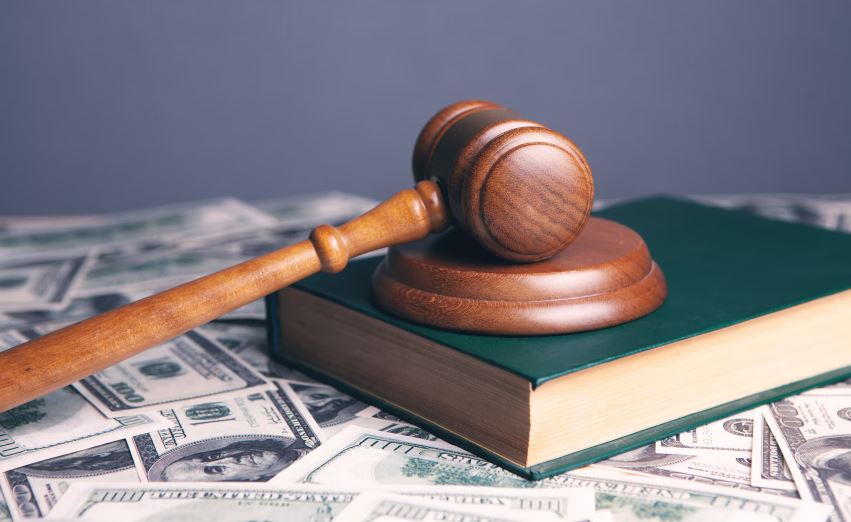Selling your house can be stressful. Add a tax lien to the mix, and it might feel downright impossible. But is it?
Can you actually sell your house with a tax lien?
The answer is yes, but there are hurdles to jump through.
In this post, I'll explain what tax liens are, and guide you through the process of selling a house with a tax lien. Plus, I’ll answer some FAQs at the end.
What Is A Tax Lien?
A tax lien is a legal claim the government places against a property for unpaid taxes. This lien serves as a way for the government to secure the unpaid tax debt.
There are 3 main types of tax liens that can affect your home:
- Property Tax Liens: These are the most common type, placed for unpaid property taxes to your city or county.
- State Tax Liens: These liens arise from unpaid state income or sales taxes.
- Federal Tax Liens: This type of lien is imposed by the IRS for unpaid federal income taxes.

All these liens have different rules and penalty fees, so they are not the same.
If the taxes remain unpaid, the government can eventually foreclose on the property and sell it to recover the owed amount.
Or the government might issue a tax lien certificate and sell it to a real estate investor, who could also foreclose on the property to recover the debt.
So, this is a serious issue.
Can I Sell My House With A State Tax Lien?
Yes, you can sell your house even if there's a tax lien on it.
But you can’t go and sell the house like you usually would - the IRS has regulations, which I’ll talk about in a second.
And the lien must still be paid off.

The proceeds from the sale will be used to clear the lien, and the remaining funds will be yours.
And another issue is that buyers may be hesitant and offer less due to the lien, and it might take longer to find a buyer comfortable with the situation.
How To Sell a House With a Tax Lien
Here’s how to sell a house with a tax lien:
#1 Get A Certificate Of Discharge
Before you can sell your house, it needs to have a clear title.
So you have to get a certificate of discharge from the IRS or the tax authority in your state.
This certificate basically separates the lien from your property, allowing you to sell it without having to pay off the lien first.
Even with a discharge certificate, you'll still be responsible for paying the outstanding tax balance using the money you make from the sale or other assets you might have.
But getting the lien removed first can make the sale process easier.
#2 Sell Your Home
With a clear title, you can now sell the house.
You can either list it in the open market or sell to a cash buyer.
A cash buyer will usually close a deal really quickly (as fast as 7 days!) and will purchase homes in the current condition without requiring you to make any repairs or renovations.
Both options have its pros and cons:
Listing With A Real Estate Agent
| Pros | Cons |
| Can likely get a higher sale price than cash offer | Will accrue more lien debt and penalties during listing period |
| Need repairs/renovations to list at top value | |
| May face selling challenges due to lien |
Selling To A Cash Buyer
| Pros | Cons |
| Can sell the house quickly | May net less than selling on the open market |
| No repairs or renovations needed | Have to vet cash buyers thoroughly |
| Avoid accruing more interest/penalties |
#3 Pay Off The Lien At Closing
Once you have a buyer, you can make the sale.
The closing agent will use a part of the funds to pay off the outstanding tax lien and any associated fees, and the tax authority will file paperwork releasing the lien.
You'll receive any remaining sale funds after the lien and mortgage are paid off.
What If The Tax Lien Exceeds Property Value?
If the tax lien exceeds the property value, you have 3 options:
- Talk to the IRS
- Short sale
- File for bankruptcy chapter 13
First try talking to the IRS. You might be able to negotiate a payment plan or even a settlement to reduce the overall debt. But this won’t be easy and they rarely budge.
If that doesn't go as planned, consider a short sale.
The proceeds go towards paying off the lien and any remaining mortgage, but you'll likely be responsible for the difference.
If you are unable to pay off the tax lien through the sale of your home or other means, filing for bankruptcy may be a last resort option.
Bankruptcy is a serious decision with significant consequences - so talk with a lawyer first.
Even after filing for bankruptcy, the lien will likely stay on your property, meaning you still can't sell it. However, bankruptcy will stop the debt from growing and ease the overall burden.
FAQs
Why Is My Tax Lien Higher Than The Taxes Owed?
Tax liens don't just cover the initial tax amount owed, but also any interest, penalties, and fees that have accumulated over time. These extra charges can make the total lien amount much higher than the original tax debt.
How Is A Tax Lien Discoverable?
Tax liens are public records, and they'll come up during a title search, which is a regular part of selling a home. Even if the lien isn't directly linked to your name, it'll still raise a red flag and be looked into further.
What If The Tax Sale Results In The Government Making More Money Than What I Owe?
If the house is foreclosed on by the lien holder, and they sell the property for more than what is owed, you will need to fill out the appropriate paperwork to request the balance owed to you. If you do not file the paperwork for the refund of the balance owed, it will sit on the books with the government until the time allotted, and it will become the government’s money.

